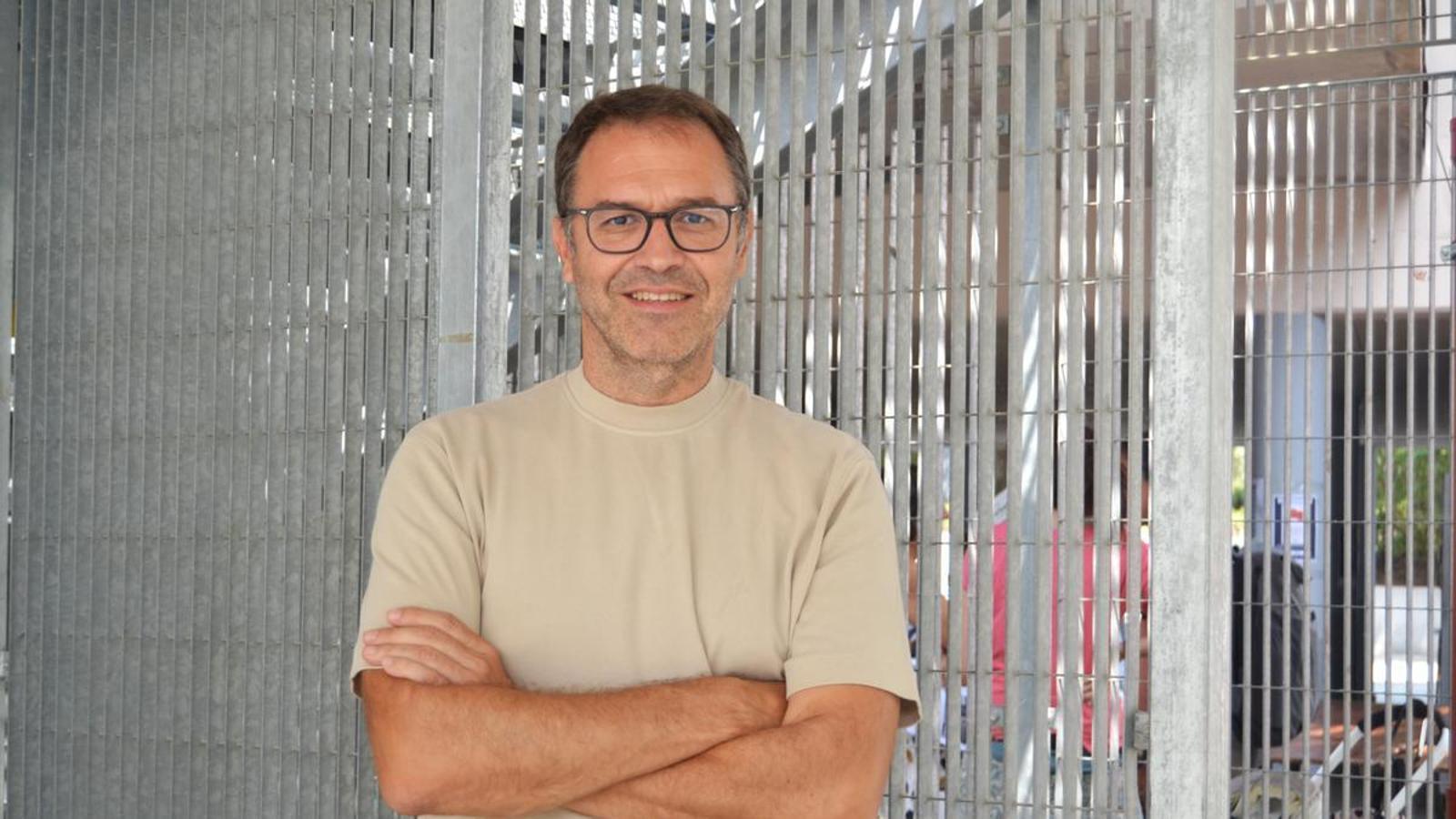The twinning of Girona and Manacor will go ahead, and in September, the mayor of Girona, Lluc Salellas, will visit the Mallorcan city to inaugurate a theater exhibition. A passion for the performing arts, in fact, unites the two municipalities. One of the bridges between the two lands is Toni Gomila, a writer and actor beloved in both Mallorca and the Girona capital, who helped draft the twinning project. In addition to cultural ties, there are shared economic and social initiatives between the two cities.
The Mallorcan mayor who claims Jaume I and who has stood up to Rafa Nadal
Miquel Oliver wants to unite Manacor with Girona, despite the opposition of the PP and Vox.


Conflent MeadowThe mayor of Manacor, Miquel Oliver, arrives at the Catalan Summer University (UCE) in Prada de Conflent wearing sandals and a short-sleeved shirt that reveals the tattoo he has on his forearm: "144." These are the days he governed when he first became mayor with Més per Mallorca in 2015, before the opposition snatched it from him. with a motion of censureRe-elected in 2019 in a municipality traditionally dominated by the right-wing PP, Oliver defines himself as a left-wing pro-independence party. In fact, he's in the UCE for this very reason: to reclaim the shared cultural identity of the Països Catalans and defend the idea that Manacor is "something more" than the Levante region of Mallorca. This has been one of his obsessions since his awakening as a pro-independence party, when he came into contact with the student movements. despite being part of a family that had voted for the PP.
"It was a vote of inertia, which I also made. But switching from the PP to voting for independence options is an evolution worth taking into account," Oliver explained at ARA after participating in a talk on the role of municipalities in national construction, alongside the mayors of La Garriga, El Masnou, Elna, and Pedreguer. There he explained an anecdote that surprised the audience: when his government proposed twinning Manacor with Girona, the right and far right of the municipal government questioned him and asked why an alliance with some other Spanish city couldn't be considered. How did we get here? "It's been many years of populist policies. In 2025, there are still people who doubt that the Earth is round. The same people, as a concept, are the ones who doubt that Catalan, Mallorcan, Menorcan, and Manacor are the same language," he joked.
This is Oliver's fourth year at the UCE (the first time he met Carles Puigdemont when he was mayor of Girona). Faced with the weakening national consciousness, he calls for more discussion of the history of the Països Catalans: how Jaime I came to the island of Mallorca, but also the repression experienced during the Civil War. Above all, in the face of the far-right's attempts to "distort" history, on the one hand, and the demographic and tourist pressure that is "blurring" the identity of the islands, on the other. Oliver laments that this pressure forces Mallorcans to serve those who came to the islands to do business and ended up staying. And the solution, he warns, lies in degrowth, but also in placing limits on families who live off the income they obtain from renting tourist homes. Only in this way can the "New Yorkization" of the islands be stopped, he maintains.
"Politics is not a profession"
Between councilman and mayor, Oliver has been on the city council for 16 years. He will not run again as a candidate in 2027.He believes that politics should not be a profession and is in favor of limiting, by law, the number of years a politician can hold the same position. Is he considering making the leap into national politics? The mayor is available to Més per Mallorca for the island or regional lists, but he also reminds us that he has a profession outside of politics: he is an occupational risk prevention technician. "My daughter told me she wants to be mayor. I told her to go ahead, that she will decide that, but that, first, she should do many things," he says.
While waiting for his future to be clarified, Oliver can claim credit for having stood up to one of Manacor's most illustrious citizens, tennis player Rafa Nadal, in defense of equality before the law. It was in the wake of the expansion project for his tennis academy in Manacor, which benefited from express town planning procedures (and it took him a few years to pay his share of property taxes). "Afterwards, there have been contacts, and they have been cordial. And I have nothing to say about Rafa Nadal personally," he summarizes.
But he does maintain the position he defended at the time: that Navidad—from a longtime Manacor family—was given "tailor-made town planning," with contributions from both the PP and the PSOE (Spanish Socialist Workers' Party), to facilitate the expansion of his academy. "When I was the Town Planning Councilor, people came to me and asked why they couldn't expand a shed they had on their land due to the difficulty of finding housing. And I had to tell them that there were regulations to follow, a territorial plan." The mayor criticized the fact that the same criteria were not applied to the tennis player.
